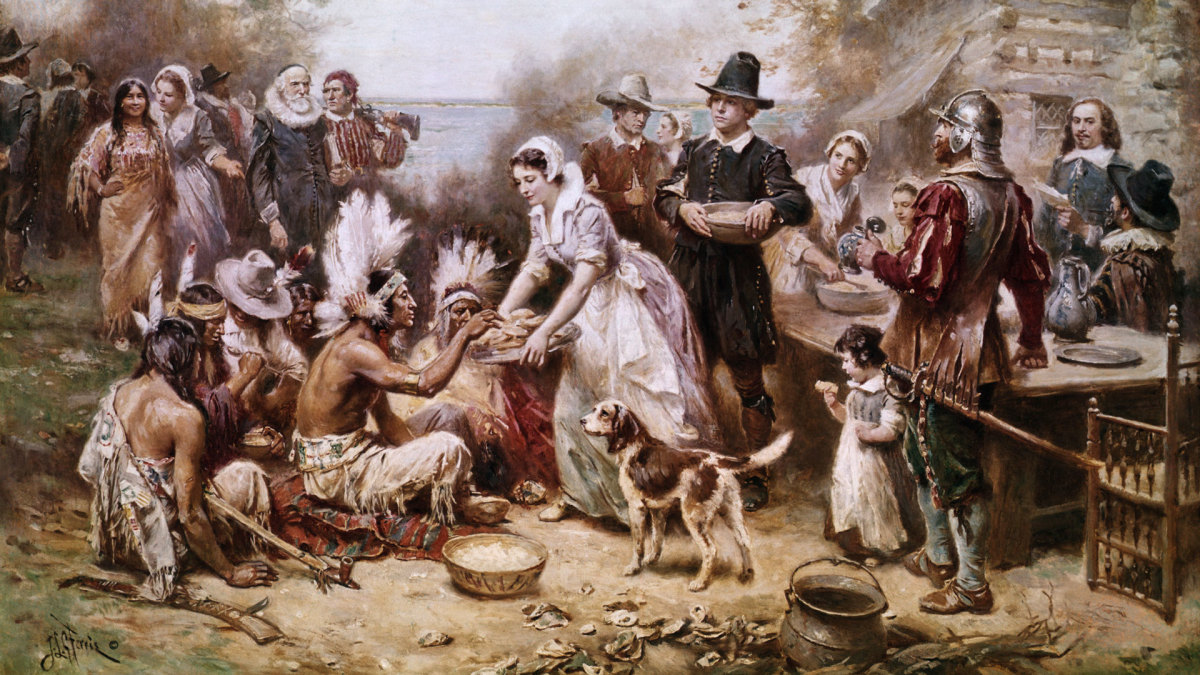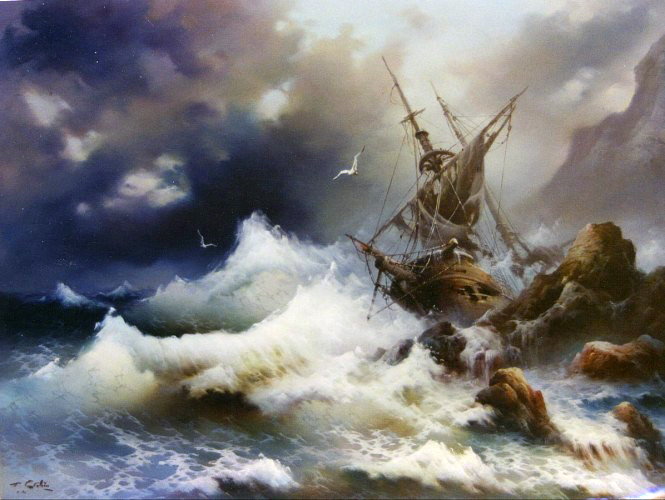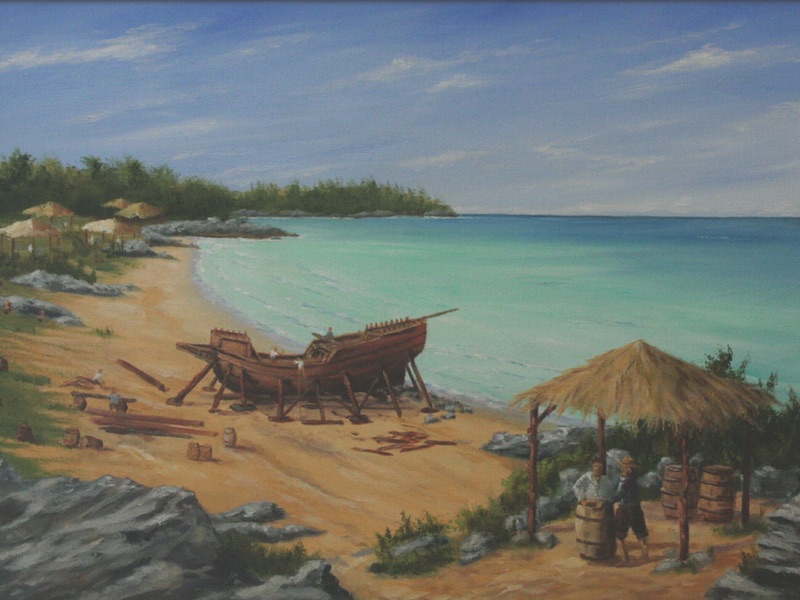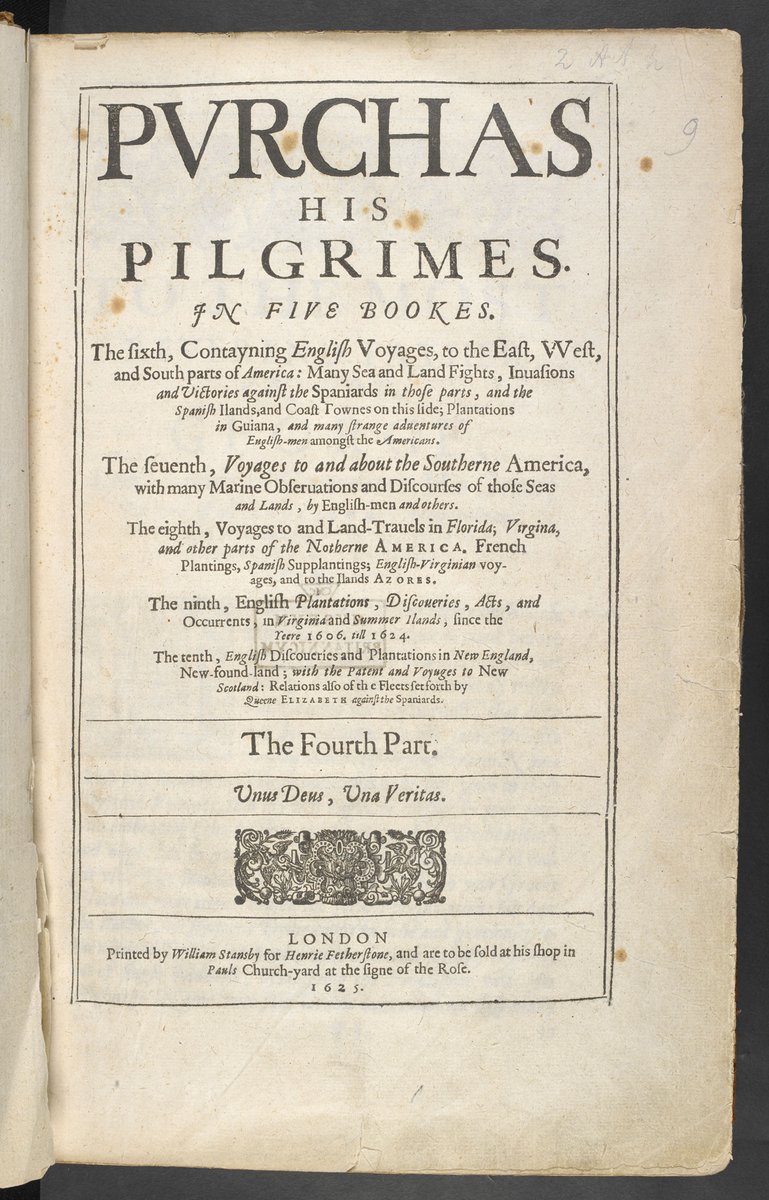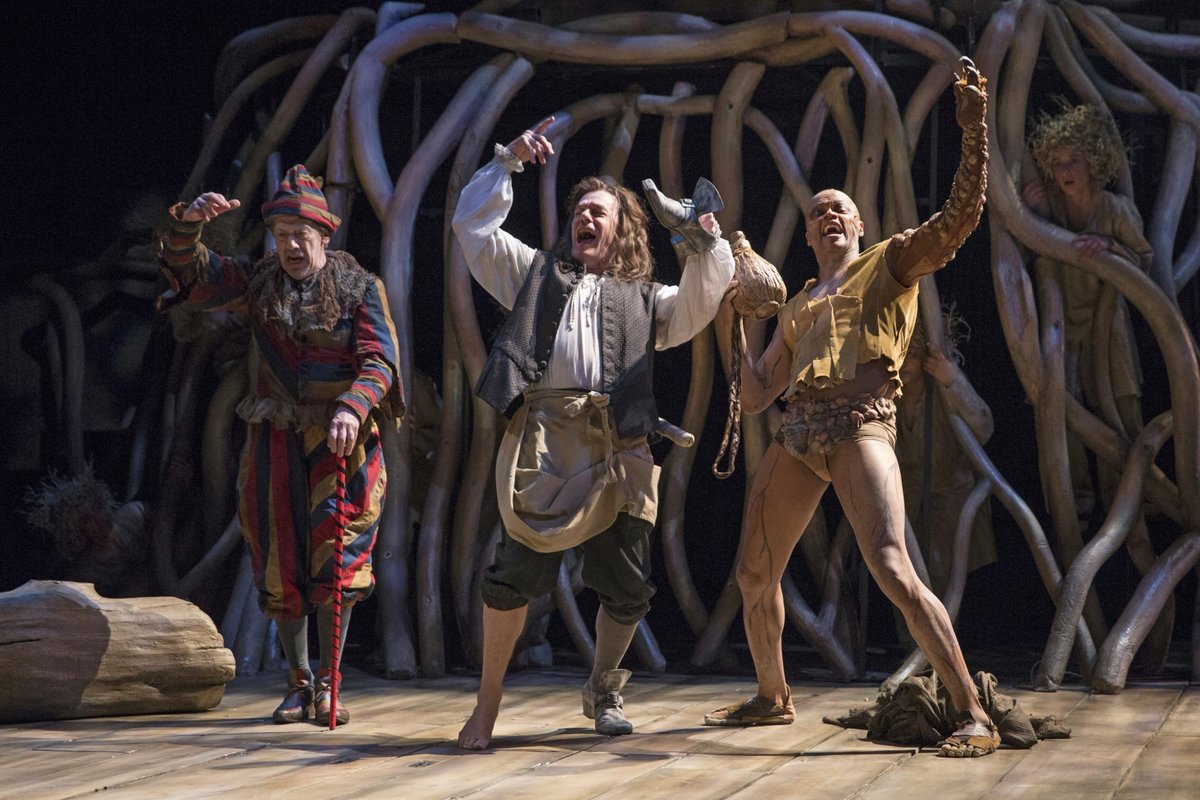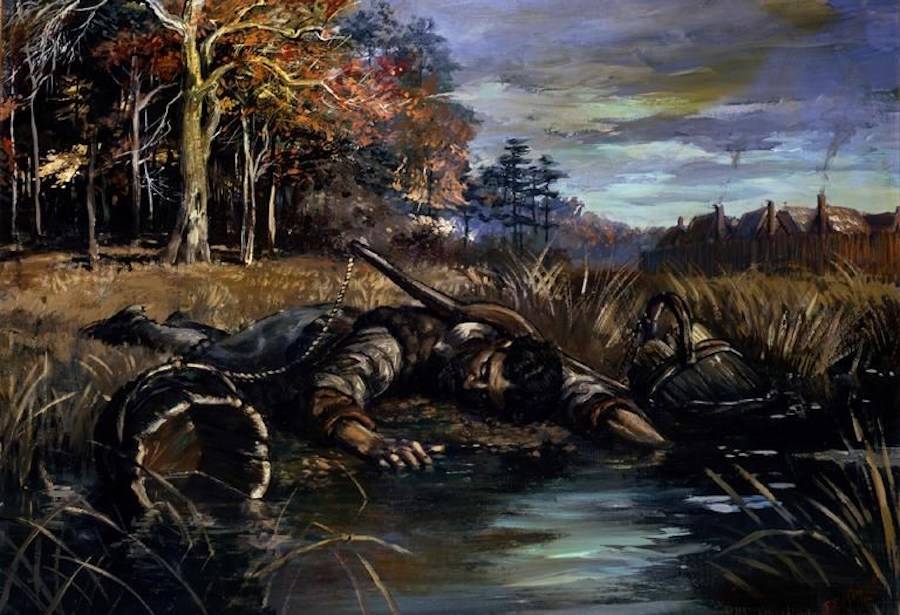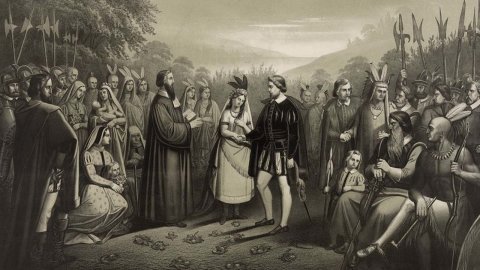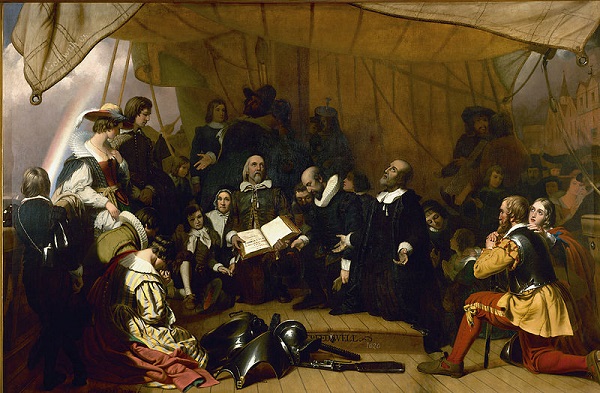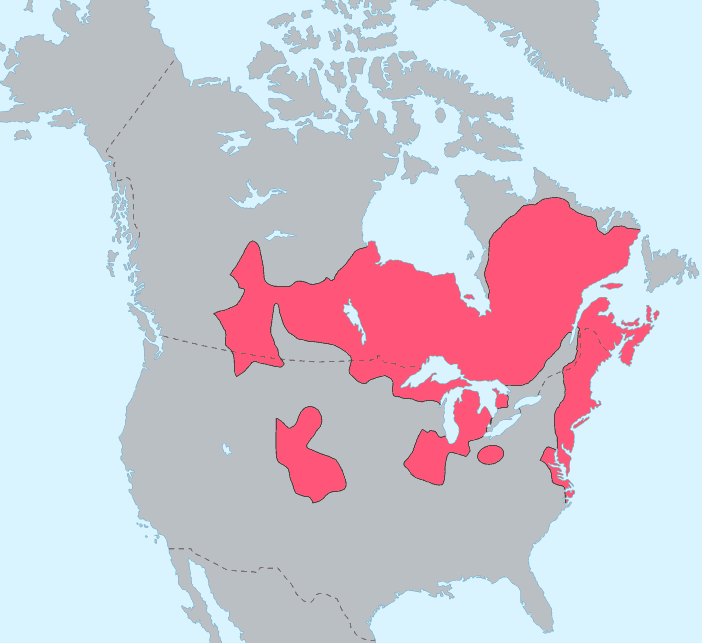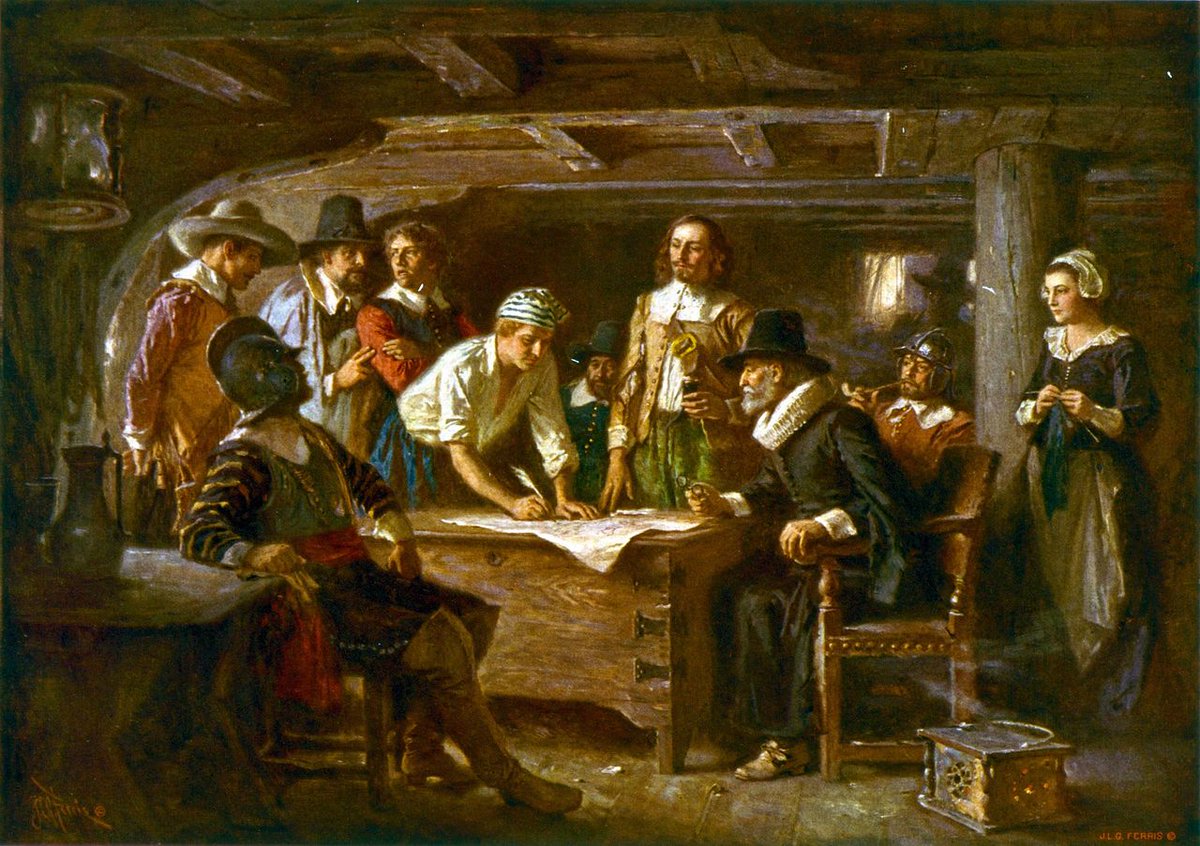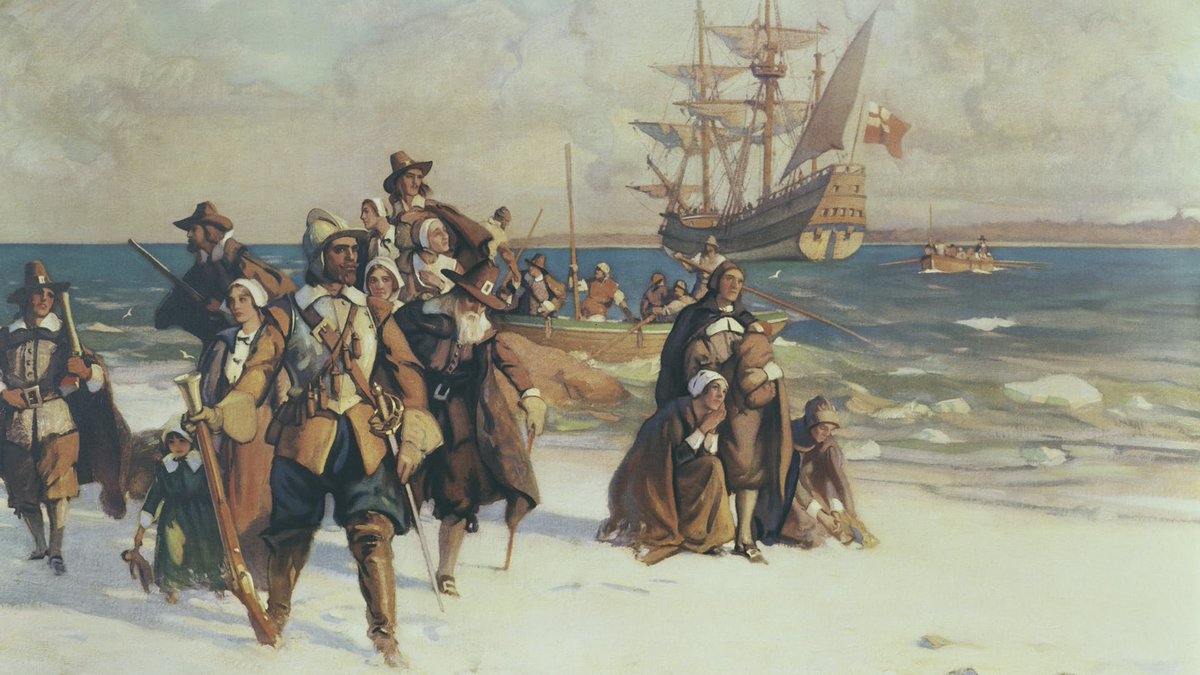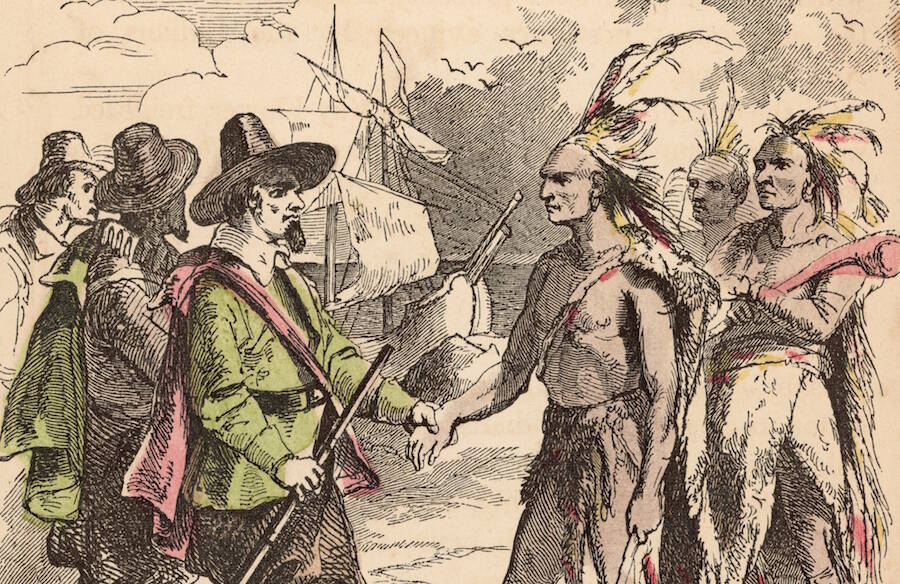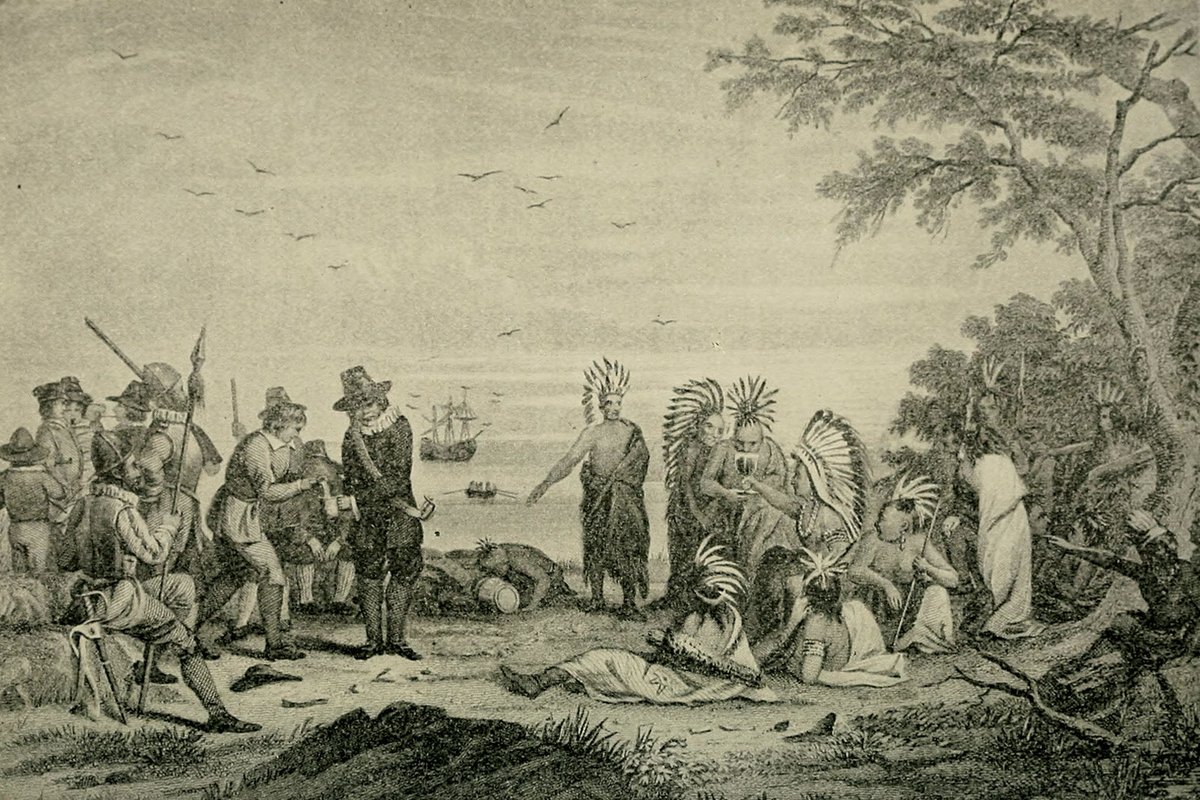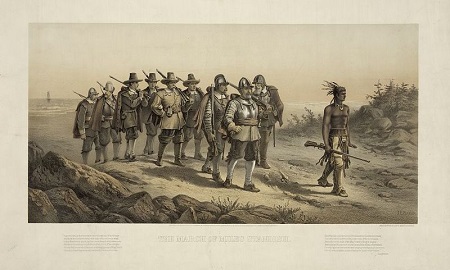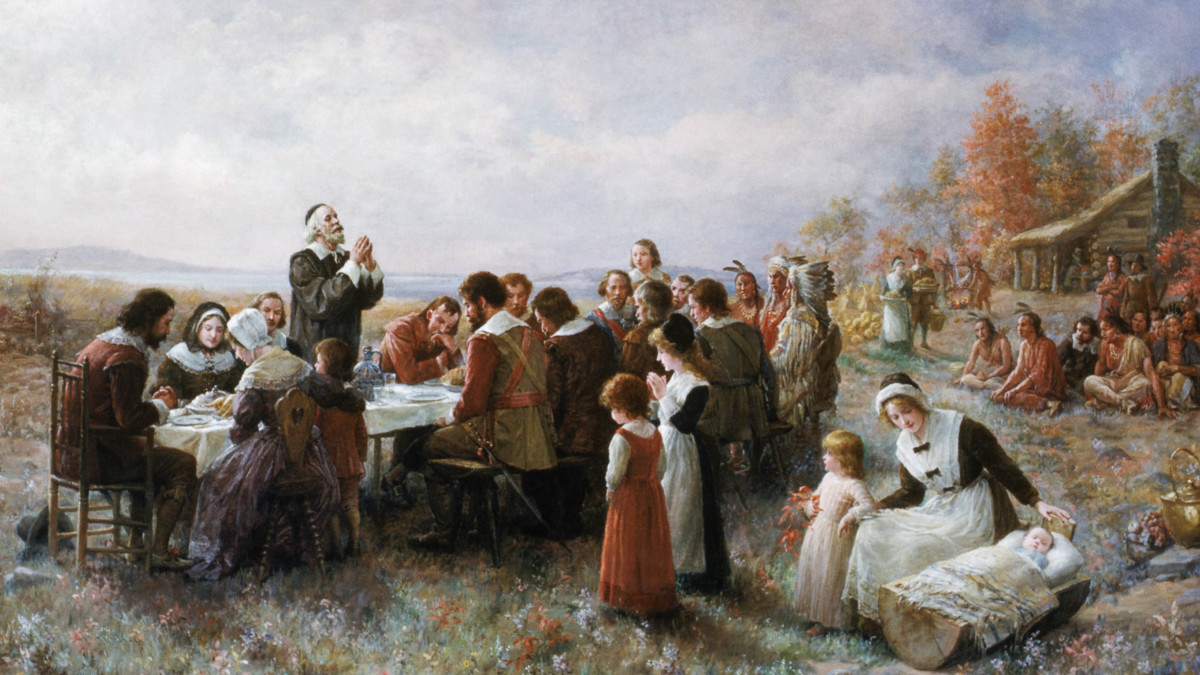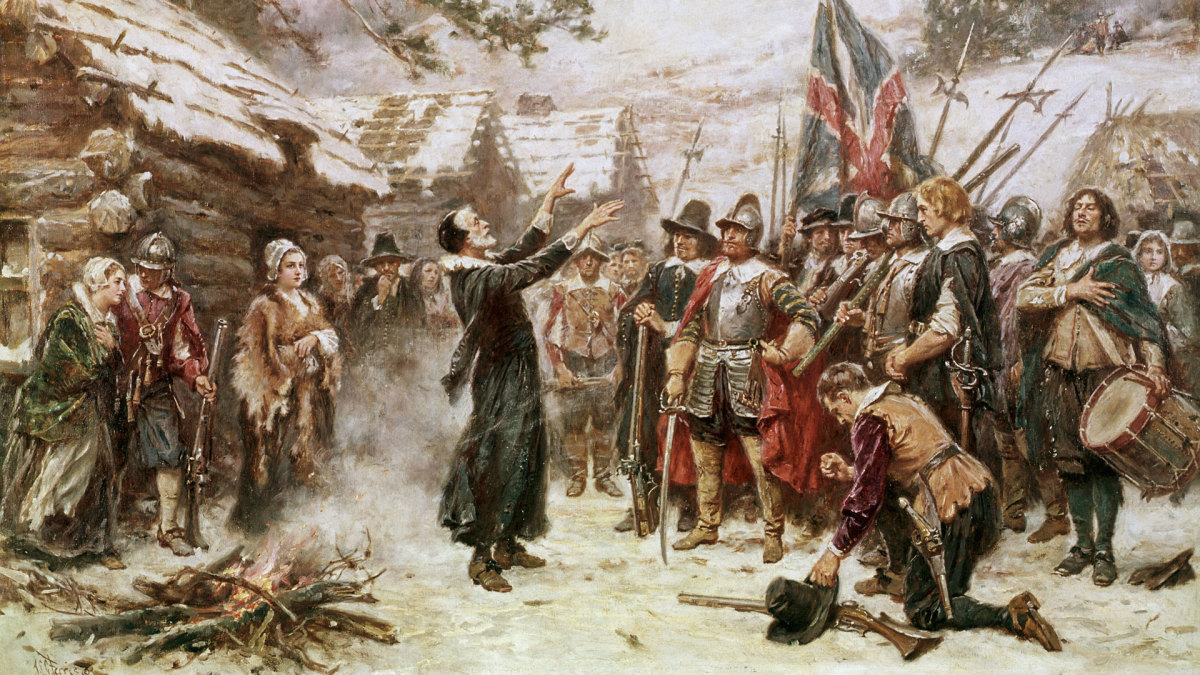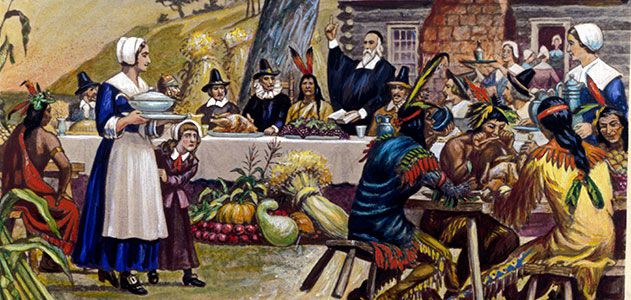THANKSGIVING THREAD
The First Thanksgiving in 1621 celebrated both the Pilgrims’ survival & their friendship with the Wampanoag Indians.
One Mayflower passenger was especially close to the Indians, and was one of only two to have visited the New World before: Stephen Hopkins.
The First Thanksgiving in 1621 celebrated both the Pilgrims’ survival & their friendship with the Wampanoag Indians.
One Mayflower passenger was especially close to the Indians, and was one of only two to have visited the New World before: Stephen Hopkins.
In 1609, Hopkins was on the fateful Sea Venture expedition to the newly-founded Jamestown colony in Virginia to provide supplies and deliver a new governor. They hit a bad storm (possibly a hurricane) en route and were shipwrecked on Bermuda.
All aboard were saved and the island had plenty of food. The governor took charge and set the men to work gathering food, building shelters, and constructing pinnaces to sail to Virginia, where the other ships of the expedition had safely arrived.
Hopkins, who had joined the expedition to make a fortune, became disillusioned. He insisted that the governor had no authority since they weren’t in Virginia, and the captain had no authority since they were ashore.
He was arrested as a mutineer and sentenced to death.
He was arrested as a mutineer and sentenced to death.
William Strachey, whose account of the voyage circulated widely back in England, recorded this incident. Hopkins was saved by the intercession of several prominent men, including Strachey himself and the captain.
(This was no display—a later mutineer was executed).
(This was no display—a later mutineer was executed).
Hopkins was spared because he was well regarded and liked. Despite this, Strachey’s account served as inspiration for Shakespeare’s “The Tempest”, which premiered in 1611—Hopkins was the inspiration for Stephano, the “drunk butler” who tries to set himself up as king.
The crew reached Jamestown in June 1610 and found a desolate sight. The colony had done everything wrong, alienating the local Indians and failing to plant adequate crops. Over the previous winter, they had lost 2/3 of their population to starvation and Indian attacks.
Fortunes began to improve with their arrival and subsequent relief fleets, but this also sparked a 4-year war with the Powhatan Indians. It ended with a peace treaty and the marriage of one of Hopkins’ fellow castaways to Pocahontas, the local chief’s daughter.
Sometime after the peace, Stephen received word that his wife had died back in England, leaving their three children alone. He returned home in 1616 and remarried to Elizabeth Fisher, settling east of London.
In 1617 the Puritan Separatists, in exile in Holland, devised the project of settling in the Virginia Colony. They started hiring a crew and skilled men for the voyage. As a survivor of a previous expedition, Hopkins was particularly sought after.
His experience fighting and trading with the Indians in Virginia was particularly valuable. Both the Powhatan of Virginia and the Wampanoag of Massachusetts were in fact part of a larger Algonquian culture.
Hopkins, his wife, and their children set sail on the Mayflower in 1620, and Elizabeth gave birth to a son named Oceanus during the crossing. On 21 November, Stephen signed the Mayflower Compact, which established self-government for the new colony.
Once ashore, Hopkins’ experience in the New World made him priceless. He took part in several reconnaissances and meetings with the local Indians.
When an English-speaking Indian named Samoset visited Plymouth in March to feel out the new colony, he stayed in Hopkins’ house.
When an English-speaking Indian named Samoset visited Plymouth in March to feel out the new colony, he stayed in Hopkins’ house.
This ultimately led to a treaty with Massasoit, a powerful nearby Wampanoag sachem. The treaty guaranteed peace, provided redress of any grievances, and mutual aid in the event of war, whether with other Indians or Europeans.
Later that year, Hopkins and another Pilgrim later went on an embassy to Massasoit. A steady stream of Massasoit's people kept visiting Plymouth in the hopes of receiving a meal and entertainment, straining the hospitality of the precarious colony.
Their visit preserved amicable relations and established more trade agreements. It also set the stage for a group of Pilgrims, including Hopkins, to aid Massasoit against a rebellious vassal amidst conflict with the neighboring Narragansett.
Warm feelings continued to grow and Plymouth prospered in 1621. That fall, Massasoit and 90 of his men visited Plymouth to celebrate their good fortune and friendship, bringing venison and joining in exercises of arms in a 3-day feast—the first Thanksgiving.
Hopkins’ personal relations with the Indians continued to be warm. In 1623 when all the collectively-farmed land was divvied out to families (even Puritan discipline couldn’t solve the free-rider problem), he had as a neighbor the one Indian living in Plymouth.
Stephen went on to be a respectable pillar of the colony, contra his earlier experience on Bermuda. He acquired significant property and served on the Governor’s Council for four different governors.
He was no Puritan though, and had occasional run-ins with authorities. He ran a tavern, and was fined for letting people get drunk on Sunday; again for “suffering servants and others to sit drinking in his house and to play shuffleboard, and such like misdemeanors.”
He received several such fines and his liquor license was eventually revoked—he was fined again for continuing to sell liquor without one.
Hopkins died in 1644, leaving a respectable fortune to his sizable family. Thanks in part to his efforts, the burgeoning colony had harmonious relations with its Indian neighbors, a situation that would last over 30 more years.

 Read on Twitter
Read on Twitter